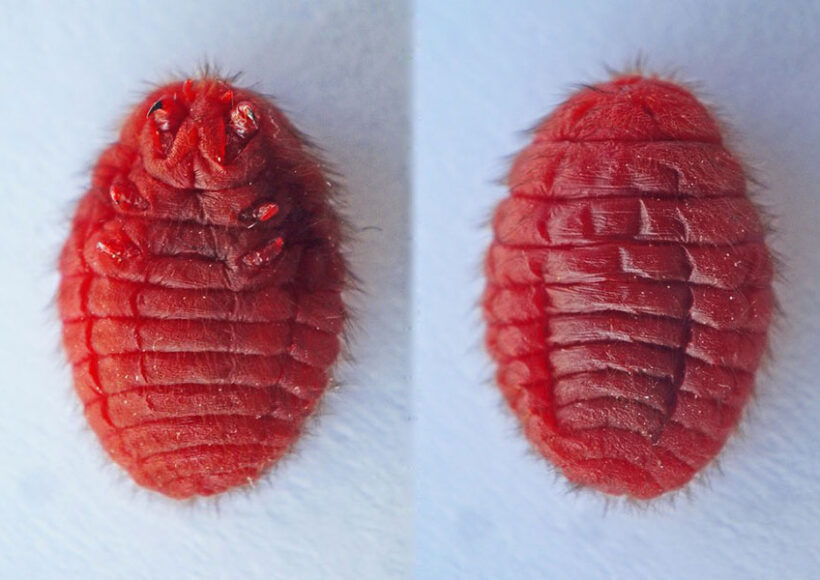What Is cochineal and carmine?
cochineal, red dyestuff consisting of the dried, pulverized bodies of certain female scale insects, Dactylopius coccus, of the Coccidae family, cactus-eating insects native to tropical and subtropical America.
Carmine – also called cochineal (for the insect from which it is extracted), cochineal extract, crimson lake, or carmine lake – is a pigment of a bright-red color obtained from the aluminium complex derived from carminic acid.Specific code names for the pigment include natural red 4, C.I. 75470, or E120. Carmine is also a general term for a particularly deep-red color.
How Is Carmine Made?
To create the dye, cochineal insects are harvested, dried out, and ground up to produce the dark red color in powder form.
Most cochineal insects are harvested in the wild, but there are also places where they are farmed. Traditional cochineal farming involves either cultivating cactus plants that are already infested with insects or adding insects by hand to wild cactus pads. In other farming methods, baskets containing females are added to cactus pads to reproduce in a controlled environment.
The dye extracted from the insect is boiled, filtered, and mixed with basic aluminum salts to produce the colorant. Legally, the extract must be pasteurized or treated to destroy any salmonella microorganisms. Besides beverages and yogurt, carmine is also added to processed meats (such as sausages or artificial crab meat), pastries, juices, and cosmetics.
What is cochineal used in?
Cochineal, or carmine as it is commonly known, is a red insect dye that has been used for centuries to dye textiles, drugs, and cosmetics. In cosmetics, cochineal is used to dye lipstick, blush, and eyeshadow. The color created from this cochineal dye is absolutely beautiful.

Carmine in the Beauty Industry
In the cosmetics industry, carmine is primarily used for lipsticks, eye shadow, and lipgloss.6 It is added to produce a bright red color and improve the wear ability or shade intensity of makeup, but also as a base to achieve cooler ranges of pinks and purples without using synthetic dyes.
Is cochineal safe to eat?
For the majority of the population, cochineal is a safe and naturally derived food coloring
Cochineal in Recent Times
In more recent times, cochineal dye has become increasingly popular as consumers began demanding more “natural” colors and flavorings as opposed to the petroleum and coal-tar based dyes that are largely used in today’s cosmetics industry. Quite distinct from such dyes, carmine is natural and non-toxic, and doesn’t contain the dangerous heavy metal residues from artificial colors like Red 40 and Red 2.
XI’AN AOGU BIOTECH CO.,LTD is devoted into the research and innovation in natural nutritional supplements ingredients. Our own factory and lab with the strict quality control system to ensure quality stability and real price of Carmine. At the same time, we have our own source for the raw material to make sure the production ability.
If you are interested, please feel free to contact XI’AN AOGU BIOTECH !

